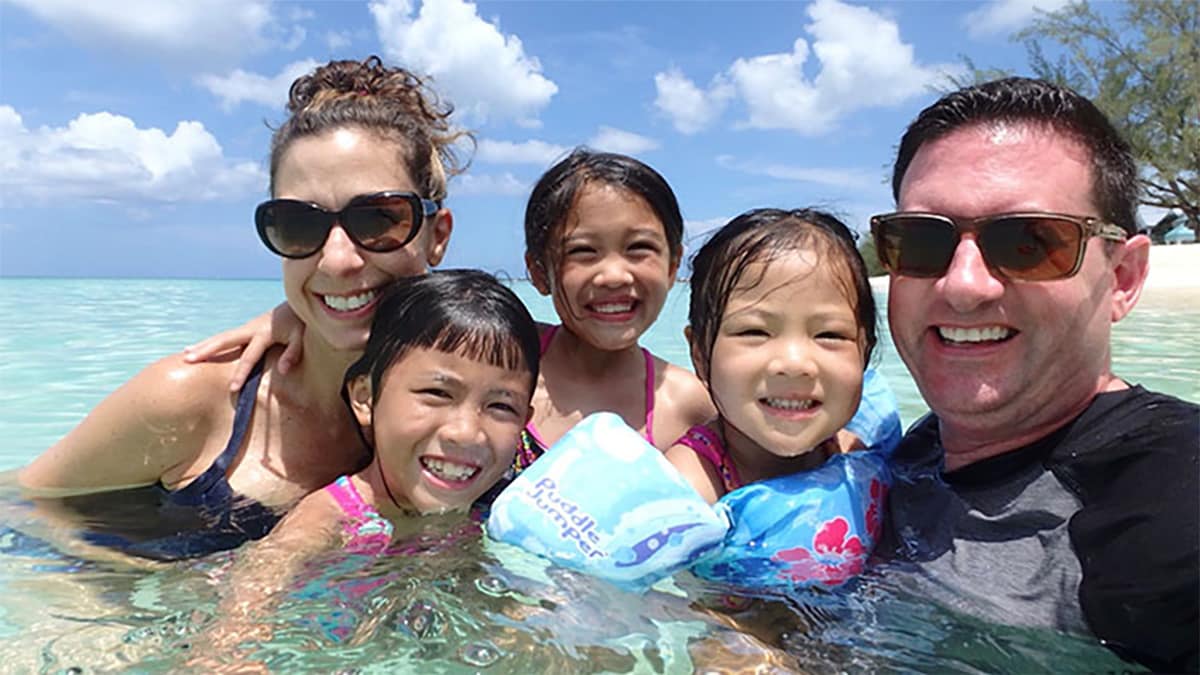At a glance
Growing up, Traci Antonelli preferred not to tell her friends or teachers that she had thalassemia, even when she was sick or hospitalized. But now she believes that sharing her story may help others.

Tracy's story
Tracy Antonelli did not receive her first red blood cell transfusion, a treatment for thalassemia, until the age of 36. Thalassemia, however, has had a big impact on her life since early childhood. By age 4, she was tired and anemic; eventually, she was diagnosed with thalassemia intermedia—a type of thalassemia that typically does not require treatment with blood transfusions until adulthood. However, Tracy's spleen (an organ above the stomach and under the ribs) was removed when she was 5 years old; and afterward, she had to be admitted to the hospital every time she developed a fever. Growing up, she didn't know anyone else with thalassemia and sometimes felt very alone.
As an adult, Tracy decided to embrace her thalassemia and began to thrive—not despite having thalassemia, but because of it. Tracy began to attend thalassemia conferences, where she was able to connect with other patients and share her story. She also participated in several thalassemia research studies. She was an outstanding student, and her interest in health care led her to obtain a master's degree in public health. This was followed by a successful career working on research studies as a clinical trial manager.
When Tracy met Patrick, her future husband, she told him early on that she had thalassemia. Knowing that Tracy had a chronic illness didn't change his feelings toward her or his hopes for their future. "So much of how others view our thalassemia has to do with how we view it and how we present it to others," said Tracy. "If we are strong and confident about it and have a positive attitude, then others will probably feel the same way."
Although Tracy was told that she could have children of her own, she had decided as a young girl that she wanted to adopt out of concern for the many children in this world who are in need of families. As an adult, Tracy learned that there were children with thalassemia available for adoption in China, making her even more driven to adopt.
Knowing that she and Patrick could provide a loving home and access to expert medical care, Tracy and Patrick eventually adopted three girls with thalassemia from China—Emmie, Rosie, and Frannie. They were able to visit one of their daughters' orphanages, where they saw that the nannies provided the best care that they could with extremely limited resources.
All three girls were in desperate need of blood transfusions when they arrived in the United States. With access to the appropriate care, they quickly began to grow and thrive with the love of their forever family. Now, they are a very active family—hiking, bike riding, and traveling together as much as possible. The girls are passionate about their sports activities, which include swimming, dancing, and playing basketball.
As Tracy and the girls take their thalassemia chelator medicine together, they share their feelings about thalassemia, admitting that they sometimes don't like having to stick themselves with a needle, or that they are sad they have to miss school in order to get a blood transfusion to treat thalassemia. Together, they have learned to acknowledge and accept their feelings about having a chronic illness. And the girls usually conclude, "But we are happy to have these treatments [chelation medicine and blood transfusion] so that we can stay healthy and do all the things that we like to do."
When Tracy was growing up, she preferred not to tell her friends or teachers that she had thalassemia, even when she was sick or hospitalized. But she is raising her daughters differently—she and her family believe that sharing their story may be helpful to others. Tracy hopes that her daughters' experiences with thalassemia may be different than her own in some ways. "When I was young, there was a time that I wanted to hide my thalassemia," said Tracy. "I think it is understandable for my daughters to be private about thalassemia, but I never want them to feel ashamed or alone." She notes that having thalassemia, or any chronic illness, can bring many good things into a person's life. "It connects you to a whole community of people who are like you, which enables you to make very special friends. It also teaches you to be resilient and to make the most out of a difficult situation. Thalassemia has brought so many wonderful things into our lives."
Tracy offers the following tips for others:
- As a patient, or parent of a patient with a rare disorder, you are frequently put in the position of advocating for yourself or your child. Building partnerships with your healthcare providers, so that important decisions are made as part of a team, can help you to get the best possible care.
- Building relationships with groups such as the Cooley's Anemia Foundation, and with fellow patients and families, can provide an important support network for patients with thalassemia who are trying to live their best lives.
Reflecting on her life, Tracy says "Having thalassemia put me on this amazing journey to our daughters. I am so proud to be living life and thriving with thalassemia, and I hope that my girls will grow up feeling the same way. Even with the challenges it has brought to our lives, thalassemia is something we embrace and are thankful for."
CDC thanks Tracy for sharing her personal story.
